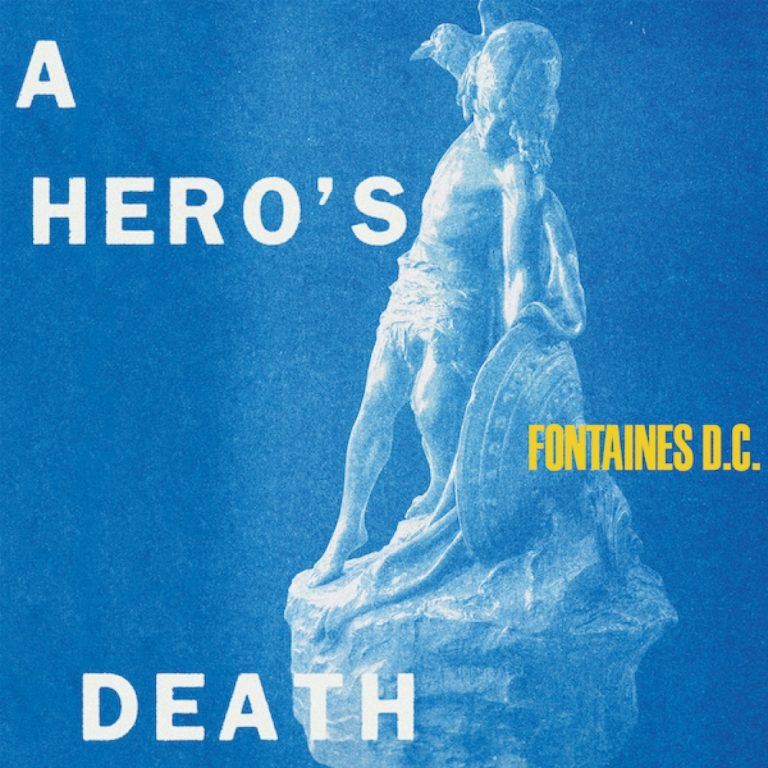A Hero’s Death is Fontaines D.C.’s followup to last year’s Dogrel, one of the best post-punk debuts in recent memory, but it feels like they want to shake off prior associations and expectations. The Dublin band still sound focused on delivering grinding guitars, driving bass, and Grian Chatten’s brogue vocals as deliberately as they can, but it’s often done without the crowd-pleasing energy of something like “Boys in the Better Land” or “Hurricane Laughter”. Dogrel fans might not be sure what to make of A Hero’s Death on first listen, despite knowing it’s definitely a Fontaines D.C. album.
It might work best if viewed as a companion piece to Dogrel, played immediately after. If their first album was a night on the town where debauchery and substances were tools to silence the voice in your head a little, then A Hero’s Death is the hangover. Song titles are recited like mantras that are less about empowerment and more about self-degradation. It even opens with “I Don’t Belong”, where Chatten wears his alienation as some kind of badge of honor.
What makes Fontaines D.C. appealing is not that they address self-doubt and nihilism in their lyrics – so many forgotten post-punk acts have relied on that crutch – it’s that they can package those tropes into something innovative while also making strong points. But sometimes A Hero’s Death gets too caught up in sounding tasteful through sounding languid, like on “You Said” or “Love is the Main Thing”, where Chatten’s vocals sound leaden when they’re meant to sound crushed, and the song progressions are too meek to stun. Far better is the title track, which could fit in perfectly on Dogrel in terms of vocal vitality, and its concept is also ingenious, if not a little cruel; Chatten offers a laundry list of rules for getting through life, punctuating them with the mantra “Life ain’t always empty” – those who’ve gotten numb to “Fitter Happier” might need some adjusting for this one. “Televised Mind” also expertly presents widespread inertia, with Conor Deegan III’s bass lines filling the track with bouncy ennui.
There are moments when Fontaines D.C. push much further against the post-punk label, opting for a sound that’s positively pastoral. What’s even more surprising than the appearance of minimally-arranged tunes like “Oh Such a Spring” and closer “No” is just how well they work. With only a few components at play – two of them being Chatten’s vocals and lyrics – Fontaines D.C. are able to show they’re not hiding behind sonic proximity to bands like Interpol. Sometimes, going for too much at once hurts the songs, like the heavy drum presence on “I Was Not Born”; the beauty of “No” is amplified not by any bells and whistles, but by how much emotional momentum it earns from Chatten’s projecting vocals and some ringing guitar chords, as well as the lyrics, which are optimistic without burying their head in the sand.
Fontaines D.C. are aware of what they’re doing here. They’ve cited influence from the likes of The Beach Boys, Broadcast, Leonard Cohen, Beach House, Lee Hazelwood, and Suicide on this album. Those comparisons can be hard to make, even when you’re looking for them, but this is definitely not just a retread of their highly successful debut. Dogrel showed Fontaines D.C. could make a great post-punk album; A Hero’s Death shows they have more than sub-genre affiliation on their minds.

